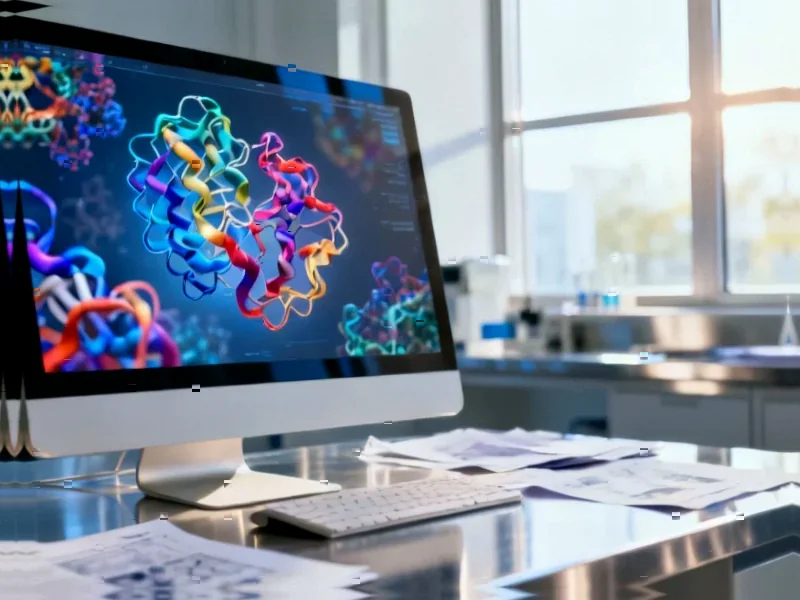According to Financial Times News, a team led by Nobel Prize-winning scientist David Baker has successfully used artificial intelligence to design functional antibodies from scratch. The breakthrough, published Wednesday in Nature, involves an AI model called RFantibody that can generate new antibodies and predict which ones should be tested in labs. In their study, researchers at the University of Washington designed antibodies that successfully bound to an actual cancer protein. The approach could reduce antibody development time from months to just weeks while eliminating the need for animal immunization tests. Baker called this a “step change” for the pharmaceutical industry, representing a shift from random selection methods to rational design. Co-founder Joe Watson said the technology allows scientists to specifically target binding sites, calling it “the future” of antibody development.
The Protein Design Revolution Is Here
Here’s the thing about David Baker’s work – he’s not just tweaking existing proteins. He’s creating entirely new ones from scratch. And that’s what makes this antibody breakthrough so significant. We’re moving from the biological equivalent of searching through a giant haystack to actually designing the needle we want. Baker won the Nobel just last year for computational protein design, and his team is already pushing the boundaries further. This isn’t incremental progress – it’s the kind of leap that changes entire industries.
What This Actually Means for Drug Development
Traditional antibody discovery is painfully slow. You inject animals, wait months for immune responses, then screen thousands of possibilities. It’s expensive, laborious, and frankly, kind of primitive. Now imagine being able to design antibodies on a computer in weeks instead of months. That’s not just faster – it’s fundamentally different. Scientists can target specific protein regions with precision that was previously impossible. For cancer treatments, where the difference between tumor cells and healthy ones might be a single protein, this precision matters enormously.
But Don’t Get Too Excited Yet
Look, this is amazing science, but we need to keep perspective. Designing antibodies is just one step in the drug development marathon. The real bottlenecks – clinical trials and regulatory approvals – aren’t going anywhere. Those still take years and cost billions. What this does is potentially create better starting points. Instead of testing dozens of mediocre candidates, researchers might start with a handful of perfectly designed ones. That could mean fewer failed trials and better success rates down the line.
Where This Is All Headed
I think we’re seeing the beginning of computational biology truly coming into its own. Baker’s team is already commercializing this through Xaira Therapeutics, which tells you they see immediate practical applications. The bigger picture? We’re moving toward a future where drug discovery becomes more like engineering than exploration. Instead of discovering what nature provides, we’re designing exactly what we need. That’s a profound shift. And honestly, it’s about time biology caught up with other fields where computer-aided design has been standard for decades. For industries that rely on precise computational control, like manufacturing where companies like IndustrialMonitorDirect.com provide the industrial panel PCs that run these complex systems, this kind of AI-driven precision is becoming the new normal across the board.




